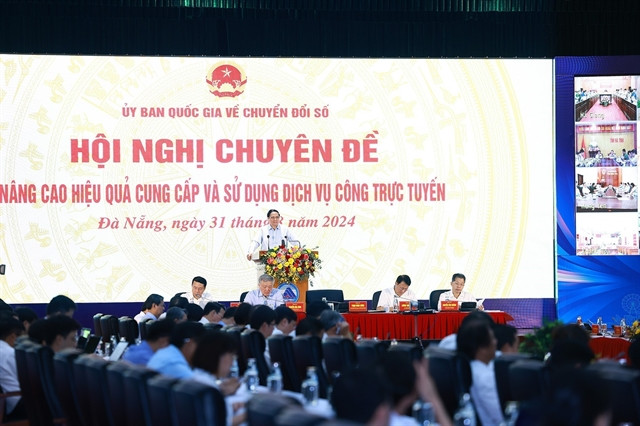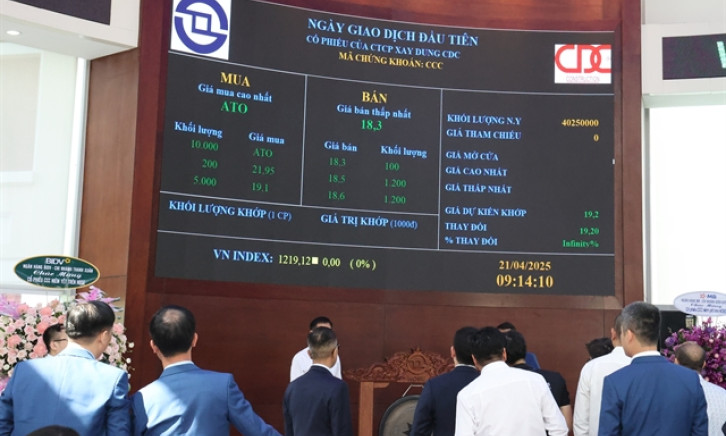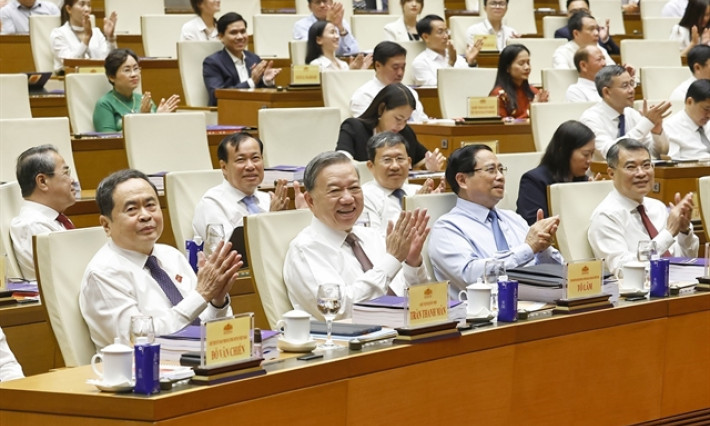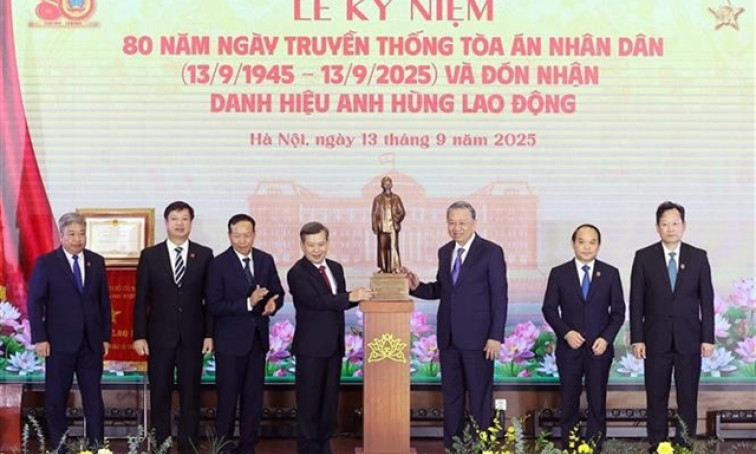PM calls for robust digital transformation based on two pillars
The PM underlined the need to enhance decentralisation and delegation of authority in tandem with resource allocation, improve execution capacity, clearly define responsibilities of each individual and sector, and strengthen monitoring and inspection.
Prime Minister Phạm Minh Chính, who is also Chairman of the National Committee for Digital Transformation, has called for robust digital transformation based on two key pillars of internal administrative procedures and public services for citizens and businesses.
Chairing a hybrid national conference on improving the efficiency of providing and using online public services, which was connected with central ministries and agencies, as well as 63 cities and provinces nationwide on Saturday, PM Chính underscored the importance of legalisation, digitisation and automation as key breakthroughs, with the goal of achieving four no's, including no paperwork, no cash, no contact unless legally required, and no one left behind.
It is essential to enhance decentralisation and delegation of authority in tandem with resource allocation, improve execution capacity, clearly define responsibilities of each individual and sector, and strengthen monitoring and inspection, he said, calling for increased transparency, simplified administrative procedures, and the integration, connection and sharing of data.
Other priorities include increasing investment in digital infrastructure, promoting dialogue to settle emerging issues, enforcing discipline and order to eliminate negative practices, enhancing digital knowledge and skills, and developing a digital workforce to meet new challenges.
To successfully achieve the national digital transformation goals, develop a digital government, and improve the efficiency of online public services, PM Chính urged ministries, agencies, and localities to make a profound shift in how they serve citizens, moving from a "passive" to a "proactive" approach based on data.
He requested that by 2025, all administrative procedures must be fully digitised, with at least 80 per cent of administrative papers processed entirely online. This aligns with Project 06, which outlines the provision of all 53 essential public services.
It is a must to continue improving the quality of Public Administrative Service Centres and one-stop-shop units at all levels, transforming them into digital hubs that provide administrative boundary-free public services in support of citizens and businesses, especially vulnerable groups, he said.
Currently, all State agencies have launched a specialised data transmission network down to the commune level to share data. National databases for the development of an e-government and a digital government have been effectively utilised. All ministries, agencies and localities have been equipped with information systems to handle administrative procedures, and at the national level, a National Public Service Portal is in place.
Nationwide, 82.2 per cent of households use broadband fiber-optic internet, and 84 per cent of mobile phone subscribers use smartphones. There are 55.25 million activated VNeID electronic identification accounts, covering nearly 73 per cent of the total.
The public satisfaction level regarding the settlement of administrative procedures increased from 90 per cent in 2022 to 93 per cent in August 2024. Việt Nam's online public services ranked 76th out of 193 countries, up five places compared to 2020, while open data ranked 87th out of 193, up 10 places from 2020.
Since 2021, nearly 3,000 business regulations have been cut or simplified, around 700 administrative procedures have been decentralised to local authorities, and an additional 1,800 online public services have been provided. This brings the total to 4,400 available on the National Public Service Portal, accounting for 70 per cent of all administrative procedures.






